Outline for Construction Proposal Template: A Comprehensive Guide for Success Leave a comment
The Importance of a Construction Proposal Template

A construction proposal template is crucial as it lays the foundation for a project’s success. It streamlines communication, ensures all necessary details are covered, and sets the stage for a well-organized approach.
Setting the Stage: Why Templates Matter in Construction
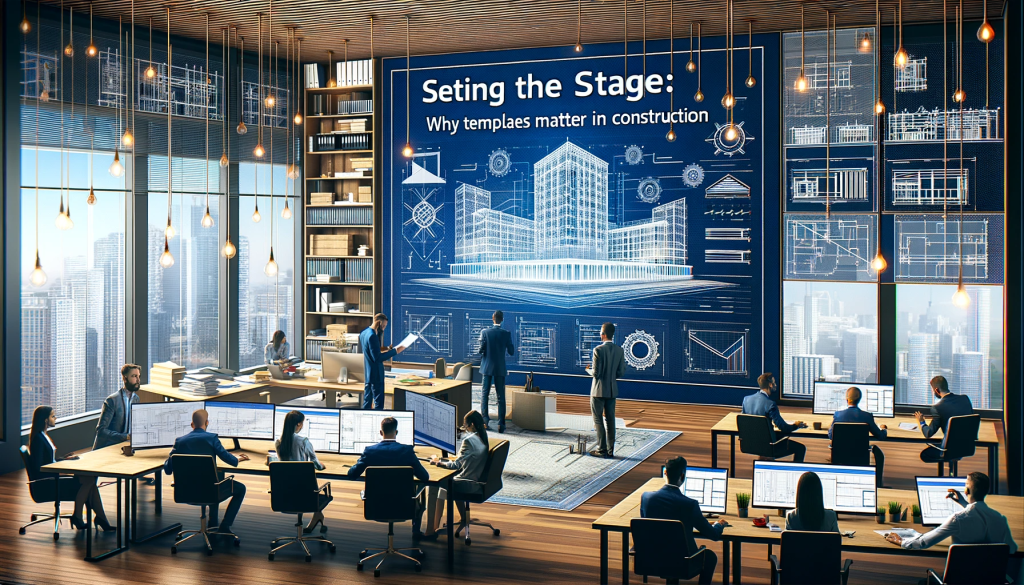
Templates in construction are not just about saving time; they’re about creating a consistent, professional approach that clients trust. They help in maintaining uniformity in communication and documentation.
The Impact of a Well-Designed Proposal on Project Success
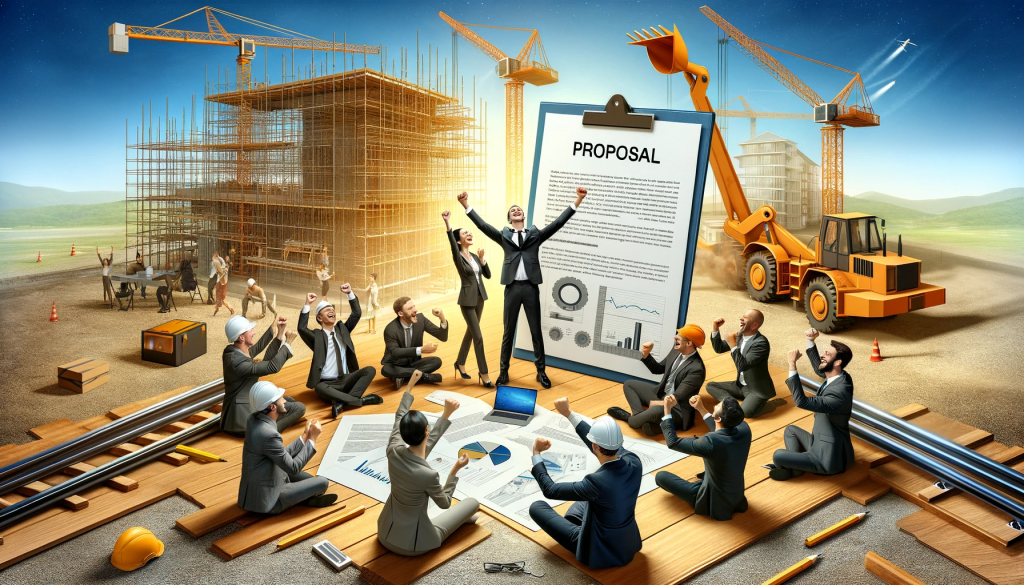
The effectiveness of a construction proposal can significantly influence the client’s decision-making process. A well-designed proposal presents the project scope, objectives, and cost estimates in a clear and concise manner.
Key Elements of an Effective Construction Proposal
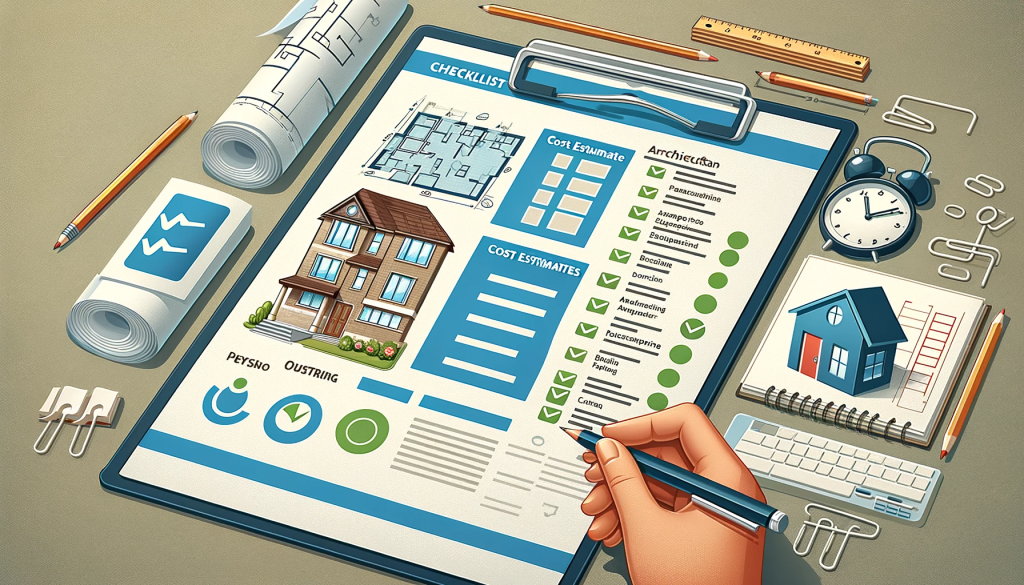
An effective construction proposal should include project objectives, scope, timeline, cost estimates, and legal considerations. It should be tailored to the specific needs of the client and the project.
Overview of Essential Components
This section will delve into the fundamental components of a construction proposal, including project summary, scope of work, timelines, cost estimates, and legal terms.
Tailoring Content to Client Needs and Project Scope
Customizing the proposal to suit the specific needs of the client and the nuances of the project scope is vital for demonstrating understanding and capability.
Structure and Layout: Organizing Your Proposal
A well-organized structure is key to ensuring that your proposal is clear and easy to navigate. This includes a logical flow of information, clear headings, and an intuitive layout.
Design Principles for Clear Communication
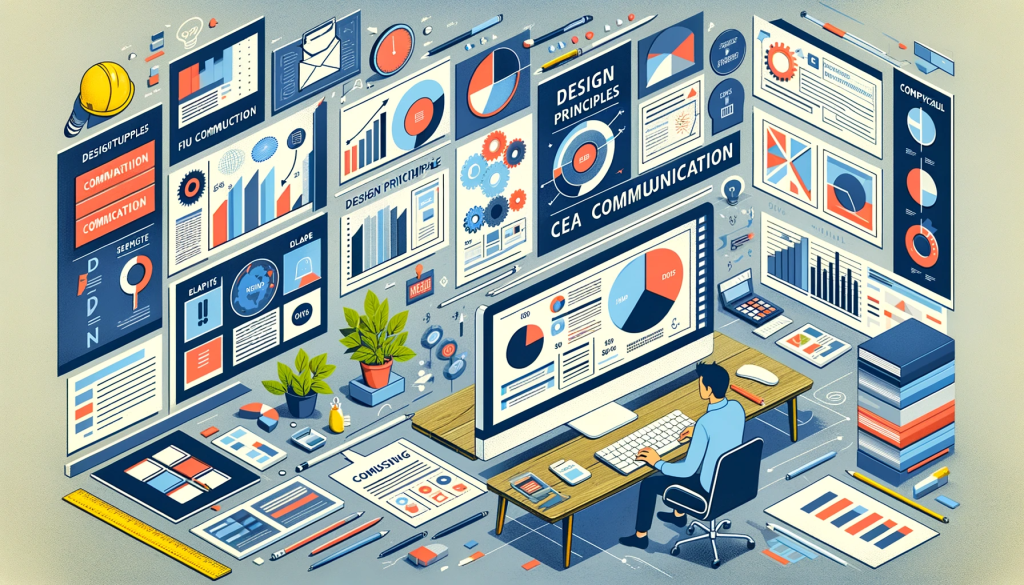
Effective communication in a proposal is achieved through clear language, concise content, and a layout that guides the reader through the document seamlessly.
Balancing Detail and Readability
Finding the right balance between providing enough detail and maintaining readability is crucial. Too much detail can overwhelm, while too little can leave questions unanswered.
Customizing Your Template: A Step-by-Step Guide
This guide will provide step-by-step instructions on how to customize a construction proposal template to fit the unique requirements of different projects.
Adapting to Different Types of Construction Projects

Construction projects vary greatly, and your proposal should reflect these differences, whether it’s a residential build, a commercial project, or an industrial development.
Incorporating Client Feedback and Industry Standards
Incorporating feedback from clients and aligning with industry standards are critical steps to ensure your proposal is up-to-date and meets all necessary requirements.
Cost Estimation and Budgeting in Your Proposal
Accurate cost estimation and budgeting are the backbone of a construction proposal. This section should provide a clear and detailed breakdown of all costs involved.
Transparency in Cost Breakdown

Transparency in the cost breakdown not only builds trust with the client but also helps avoid misunderstandings and disputes later in the project.
Managing Expectations: Realistic and Accurate Estimates
Setting realistic and accurate cost estimates is essential for managing client expectations and ensuring that the project remains financially viable.
Timeline and Scheduling: Ensuring Timely Completion
A detailed timeline and schedule are key to demonstrating how the project will progress and ensuring that expectations regarding completion dates are set.
Mapping Out Project Phases
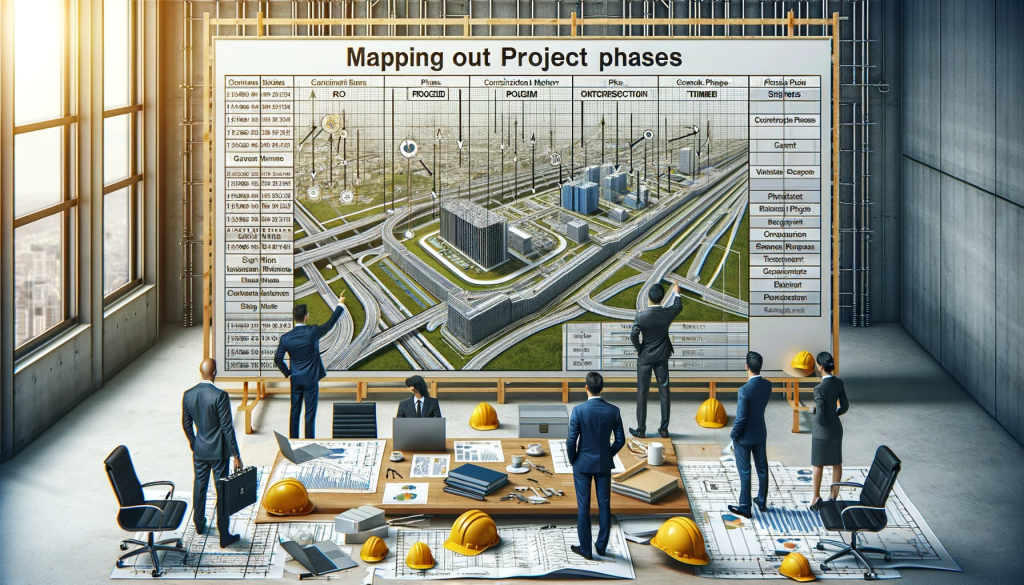
Breaking down the project into phases helps in managing the project more efficiently and provides a clear roadmap for completion.
Dealing with Delays and Contingency Planning
This section will cover strategies for dealing with unforeseen delays and the importance of having a contingency plan in place.
Legal Considerations and Compliance
Addressing legal considerations, such as contracts, permits, and compliance with local regulations, is vital for the legitimacy and smooth operation of the project.
Effective Communication with Clients Using Your Proposal
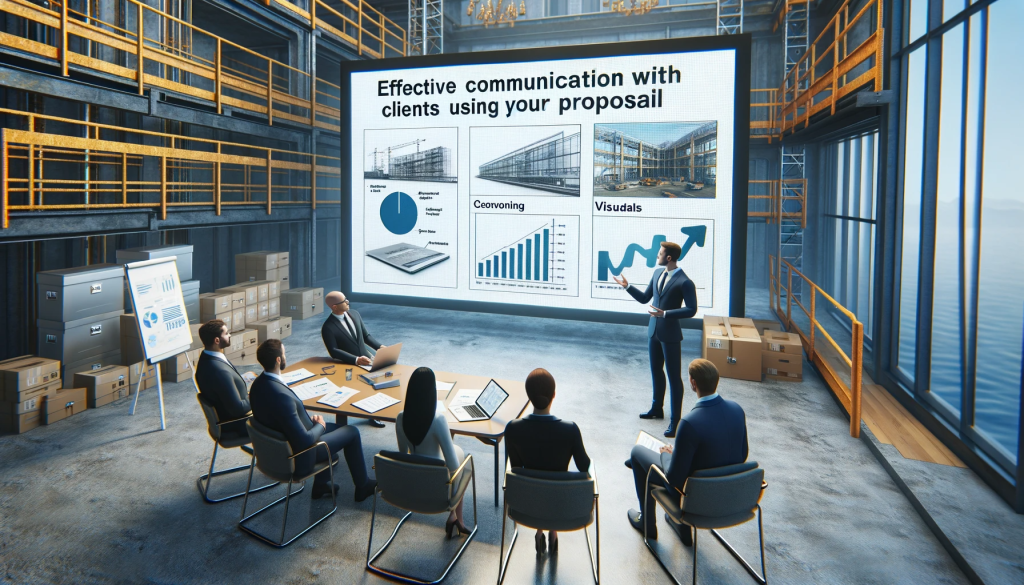
Your proposal is not just a document; it’s a communication tool. How you communicate within the proposal can build trust and clarity with your clients.
Building Trust Through Clear Language
Using clear, jargon-free language helps in making the proposal accessible and understandable to all stakeholders.
Utilizing Visuals for Enhanced Understanding
Visual aids like diagrams, charts, and images can greatly enhance the understanding of complex aspects of the proposal.
Risk Management in Construction Proposals

Identifying and managing risks in your proposal is essential for protecting both the client’s and your interests.
Identifying Potential Pitfalls
Spotting potential issues early on can save a lot of time and resources. This section will cover common pitfalls and how to identify them.
Strategies for Mitigation and Response
Once risks are identified, having strategies for mitigation and response is key. This section will provide practical tips on managing risks effectively.
Technology Integration in Construction Proposals

The role of technology in enhancing the efficiency of construction proposals cannot be overstated. This includes software for design, cost estimation, and project management.
Leveraging Digital Tools for Enhanced Efficiency
Digital tools can streamline various aspects of proposal development, from drafting to cost estimation and project scheduling.
The Role of Software in Streamlining the Proposal Process
Software solutions specific to construction can significantly improve the proposal process, making it more accurate and efficient.
Feedback and Revision: The Iterative Process
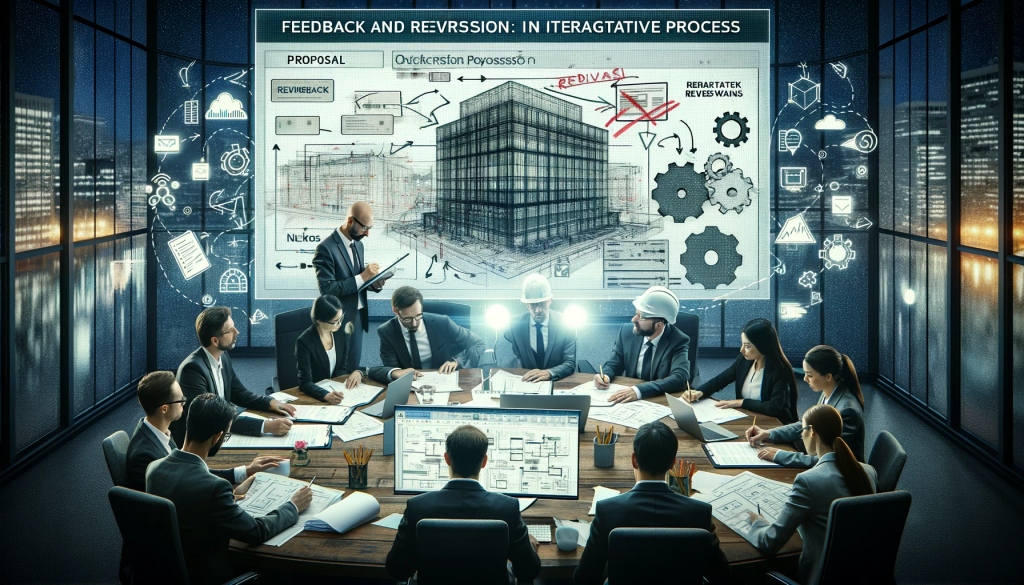
A proposal is often not final on the first draft. This section will discuss the importance of feedback and iterative revisions for continuous improvement.
Encouraging Client Engagement
Engaging the client throughout the proposal process ensures that their needs are met and that the final proposal is fully aligned with their expectations.
Making Adjustments for Continuous Improvement
Continuous improvement is key in proposal writing. This includes learning from past proposals and staying updated with industry trends.
Case Studies: Successful Construction Proposals

Real-world examples and case studies of successful construction proposals can provide valuable insights and best practices.
Analyzing Real-World Examples
This section will analyze successful construction proposals, highlighting what made them effective and successful.
Lessons Learned and Best Practices
Drawing lessons from these case studies can provide a roadmap for creating compelling and successful construction proposals.
Expert Tips for a Winning Construction Proposal
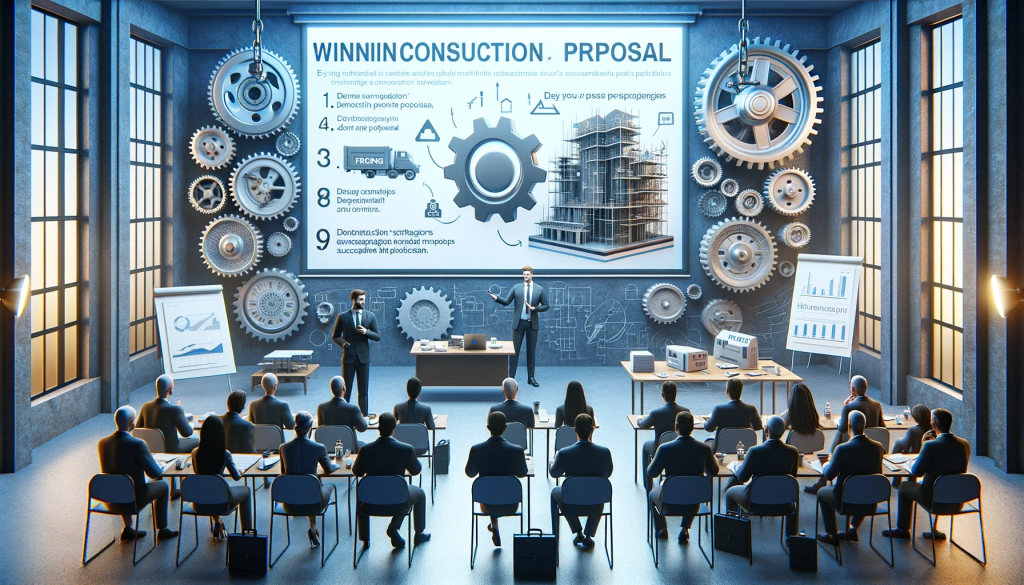
Gaining insights from industry professionals can provide an edge in crafting a winning proposal.
Insights from Industry Professionals
This section will include tips and advice from experienced professionals in the construction industry.
Avoiding Common Pitfalls
Knowing what to avoid is as important as knowing what to include. This section will cover common mistakes in proposal writing and how to avoid them.
Future Trends in Construction Proposal Development

Staying ahead of the curve is vital in a rapidly evolving industry like construction. This section will explore emerging trends and methodologies.
Emerging Technologies and Methodologies
New technologies and methodologies are shaping the future of construction proposals. This section will delve into these emerging trends.
Adapting to Changing Industry Dynamics
The construction industry is dynamic, and adapting to these changes is key for staying relevant and competitive.
Conclusion: The Path to Effective Proposals
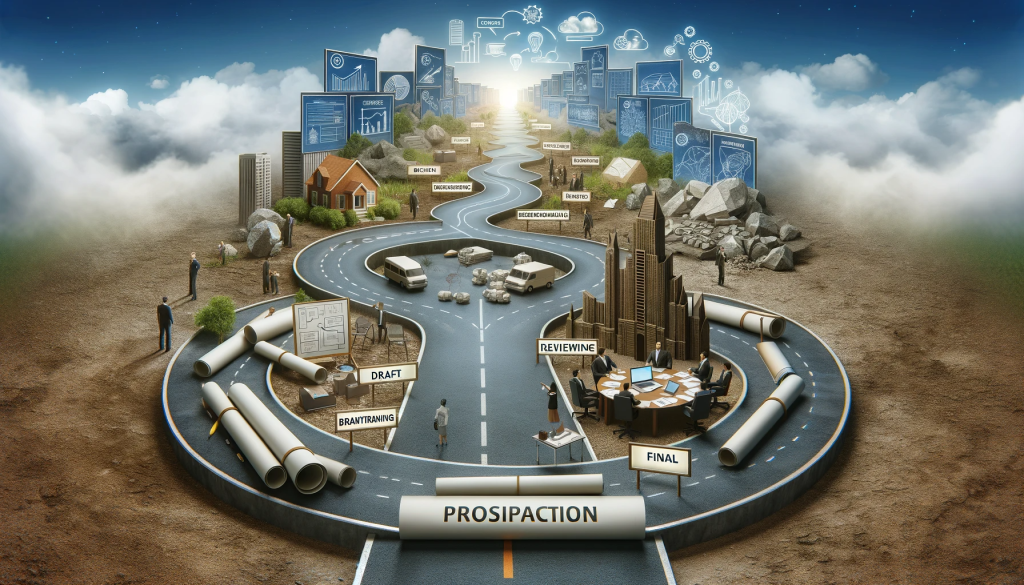
Wrapping up the guide with a summary of key takeaways and a look ahead at continuous improvement in proposal writing.
FAQs
- What are the key components of a construction proposal template?
- How can I tailor a construction proposal to different types of projects?
- What are the best practices for cost estimation and budgeting in a proposal?
- How can I effectively manage risks in a construction proposal?
- What role does technology play in modern construction proposals?
- How can I ensure continuous improvement in my proposal writing process?
Looking Ahead: Continuous Improvement in Proposal Writing
In conclusion, a well-crafted construction proposal template is a powerful tool in the hands of a construction professional.
It not only aids in presenting a clear, detailed, and professional outlook of the project but also sets the stage for successful project execution.
By understanding the key elements, adapting to different project types, managing risks, and leveraging technology, you can create proposals that not only win projects but also lay the foundation for their successful completion.
Remember, the key is in continuous improvement and adaptation to the evolving needs of the industry.

